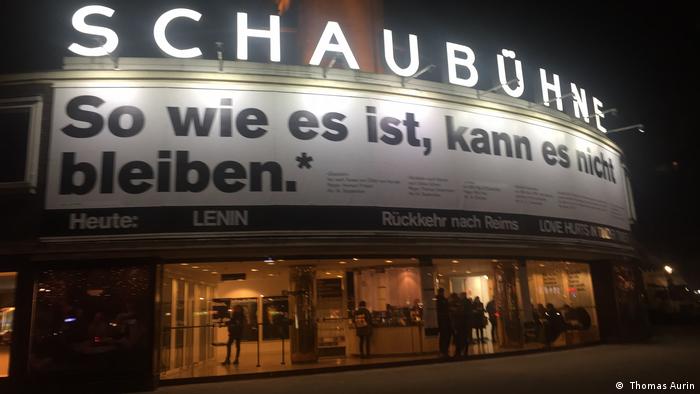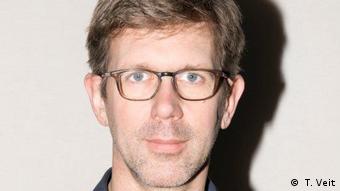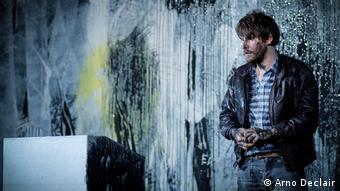The performance of Henrik Ibsen’s “An enemy of the people” has triggered in China, a fierce debate. The Berlin schaubühne must end your tour in the people’s Republic in advance. DW spoke with the Director Tobias Veit.

Deutsche Welle: Since when is the Berlin schaubühne in China?
Tobias Veit: Since 2014 we have been very often in China. In Tianjin, Beijing, Shanghai and other cities. And since there never was a problem.
What was different this Time?
That there were now problems with the enemy of the people, is probably due to the fact that “An enemy of the people” by Ibsen is a very political piece and the fact that we have in the staging of a part, in which the audience is asked to respond to a speech of the main character and to engage in an open conversation with the actors, and the characters of the piece.
The theme of the piece is a suppressed truth that has revealed the doctor and the rulers of the power of the city is suppressed, and the Newspapers will not be published. It’s about freedom of expression, and suppressed truths, about the social Situation. The piece is minted on our Western capitalist society, and our versions at all adapted, but it is ultimately a subject that generates many other companies explosive resonance.
Have you expected that you will come across in China this production on such a powerful resonance with an audience?
You never know before. But our experience in the many countries and places, where we have the piece listed, is that the audience always reacts strongly and the content is always on the local Situation and society relates. But this happens in very different ways: at times emotional, and sometimes very explicit and very carefully. Was, therefore, not clear to us how the Chinese public would react. But of course, we have already considered the possibility that it responds very open. And the did it then also.

Stage Director Veit: “We are in good dialogue with Beijing”
Can you describe what happened after that?
In the first presentation in Beijing, the discussion between actors and audience took place. But in the second and third presentation in Beijing, after we had discussed the whole night and the entire next day, with the management of the theatre, we played a different Version, where the audience discussion is missing, we know, but have made it very that you was taken out.
In the first presentation of the monster was alive. The spectators cried out in a relatively disordered in and described, in Beijing reprisals, that there are environmental scandals, that there is no freedom of expression, and that this is a big Problem. From this openness we were quite surprised. We have not been able to even imagine that you pronounce so clearly, especially since that was right next to the great hall of the people, and on the square of Heavenly peace, which is also a symbolically charged place. [1989 demonstrated on the course students for democracy. The protests were bloodily suppressed, Anm.d.Red.].
In any case, we had after the first performance of a very friendly conversation, where the hosts discussed their problems. I emphasized that we have not made extra for Beijing, but that this is our piece, as we have always played. Therefore, your request to modify this open conversation was, for us a big Problem. You got that too. And then we decided after a lot of Back and Forth, take it out, because the ideas that can otherwise take place would not have.
But to us it was also important that we communicate that there’s something missing. Despite the compromise, the whole piece has not lost its political explosiveness at all. It was an incredibly lively atmosphere. Each term, immediately, that something was missing.

Ibsen’s “enemy of the people”: Drama with regime-critical Potential
Why were canceled further performances in spite of the compromise now?
We don’t know exactly. The theatre has been officially cancelled due to technical reasons. They said that the machinery was broken and could not be repaired.
One can only speculate, but one cannot assume fairly safely assumed that the technology is the real reason, and just a pretext to get out of the affair without a scandal. For us, it is of course frustrating.
What is the incident for the future?
I can’t judge at the Moment. Since we don’t go now in dispute, but, in particular, with regard to Beijing in a good dialogue, I’m going to assume and hope that the cooperation stops now, but will continue. It would be desirable, of course, if this incident would also be the occasion to talk about the content of pieces and what you want to do for a theatre.
It was important for us to stress that this piece was listed, as it always is. We had in no way aim to produce a scandal. And now you also know that you need to take a closer look, what you invite. I just hope that this leads to the fact that certain performances are not invited.
Tobias Veit is Director of the Berlin Schaubühne.